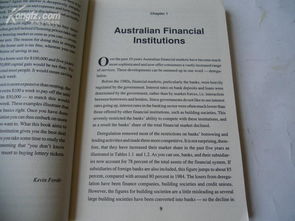How to Make Money Investing in ETFs
Investing in Exchange-Traded Funds (ETFs) has become increasingly popular among investors due to their diversification, liquidity, and lower costs compared to traditional mutual funds. If you’re looking to make money through ETF investing, here’s a detailed guide to help you get started.
Understanding ETFs

Before diving into the strategies, it’s crucial to understand what ETFs are. An ETF is a type of investment fund that trades on a stock exchange, much like a stock. It tracks a specific index, sector, commodity, or basket of assets, providing investors with exposure to a wide range of investments in a single security.
ETFs offer several advantages:
- Diversification: By investing in an ETF, you gain exposure to a broad range of assets, reducing your risk.
- Liquidity: ETFs can be bought and sold throughout the trading day, providing investors with the flexibility to enter and exit positions quickly.
- Lower Costs: ETFs typically have lower expense ratios compared to mutual funds, making them more cost-effective.
Choosing the Right ETFs

Selecting the right ETFs is essential for successful investing. Here are some factors to consider:
Asset Class
Decide which asset class you want to invest in, such as stocks, bonds, commodities, or real estate. This will help you narrow down your options and choose the most suitable ETFs.
Index or Strategy
Choose an ETF that tracks a specific index or follows a particular investment strategy. For example, you might opt for a broad-market index ETF like the S&P 500 or a sector-specific ETF like the Technology Select Sector SPDR Fund (XLK).
Expense Ratio
The expense ratio is a measure of the annual fees you’ll pay for investing in an ETF. Lower expense ratios are generally better, as they mean more of your money is working for you.
Dividends and Yield
Consider the dividend yield and potential for income generation. Some ETFs, such as dividend ETFs, can provide regular income streams.
Strategies for Making Money with ETFs

Once you’ve chosen your ETFs, it’s time to implement strategies to maximize your returns. Here are some popular approaches:
Long-Term Investing
Investing in ETFs for the long term can lead to significant gains. Historically, the stock market has provided positive returns over the long term, so holding ETFs for an extended period can be beneficial.
Dividend Investing
Investing in dividend-paying ETFs can provide a steady stream of income. Look for ETFs with high dividend yields and a strong history of paying dividends.
Market Timing
Market timing involves buying and selling ETFs based on market trends. While this can be risky, some investors believe it can lead to higher returns. Be cautious and only consider this strategy if you have a strong understanding of market dynamics.
Options Trading
Options trading allows you to leverage your ETF investments. By buying call or put options, you can profit from price movements without owning the underlying ETF. However, options trading is complex and requires a solid understanding of the strategies involved.
Monitoring and Rebalancing Your Portfolio
Regularly monitoring your ETF investments and rebalancing your portfolio is crucial for maintaining your desired asset allocation and risk level. Here are some tips:
Review Performance
Regularly review the performance of your ETFs to ensure they are meeting your investment goals. If an ETF is underperforming, consider replacing it with a better-performing alternative.
Rebalance Portfolio
Rebalance your portfolio periodically to maintain your desired asset allocation. This may involve selling some ETFs and buying others to adjust your exposure to different asset classes.
Stay Informed
Stay informed about market trends, economic indicators, and company news that could impact your ETF investments. This will help you make informed decisions and adjust your strategy as needed.
By following these guidelines and staying disciplined, you can make money investing in ETFs. Remember that investing always involves risk, so it’s essential to do your research and consult with a financial advisor if needed.



